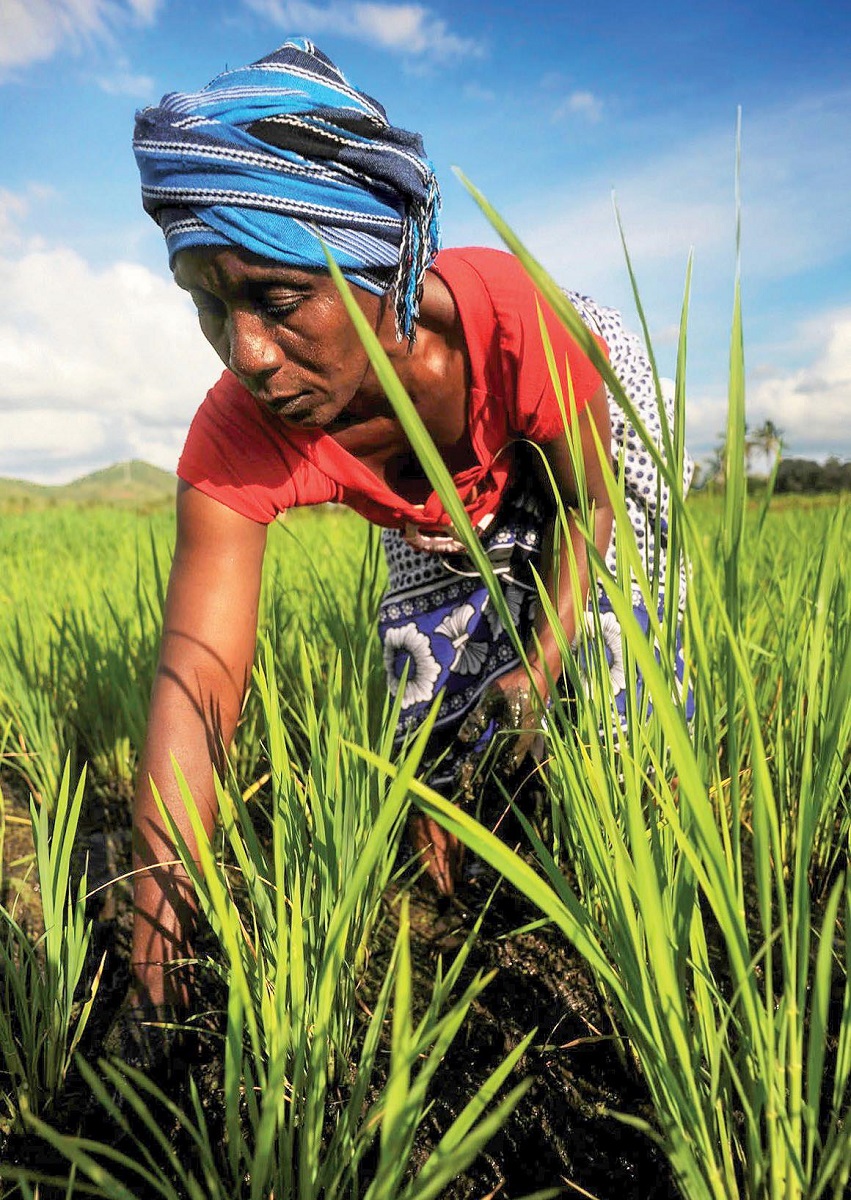This paper aimed to assess climate-smart agricultural practices in Ethiopia, discuss the contribution of climate-smart agricultural practices for mitigation of greenhouse gas emissions, and examine determinant factors of climate-smart agricultural practices in mitigation of greenhouse gas emissions. Conservation agriculture, integrated soil fertility management, agroforestry, crop diversification, and improved livestock feed and feeding practices are among the best climate-smart agricultural practices in Ethiopia. Combination of the adoption of climate-smart agricultural practices such as no-tillage increased crop diversity and retaining crop residue on-farm have a mitigation potential of increased SOC in non-flooded crops that change in a significant ton of CO2e ha-1 year-1. In addition, a mitigation potential of CH4 in reduced irrigation of paddy rice farms was also changed in ton CO2e ha-1 year-1. It was found that productivity enhancing interventions in the tropics could reduce emission intensity in dairy systems by up to 0.9 t CO2e per milk. Agroforestry practices and the addition of organic fertilizers on the farm increased mitigation potential of 784093 t CO2e and 193050 t CO2e biomass of carbon and SOC per year respectively. Adoptions of climate-smart agricultural practices are affected by different factors such as farming factors, technology inaccessibility, environmental factors, policy design and social expertise, negative attitudes and motivations of farmers, farmers’ socio-demographic factors, and farmers' socioeconomic factors. To reverse the situation, preparation of targeted climate-smart agricultural practices to areas that are likely to provide the greatest GHG reduction potential and demonstration of these practices to other areas should be encouraged so that other farmers will learn for similar agro-ecologies.

